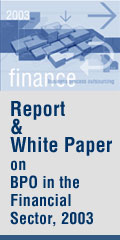|


|
Medium-term fiscal consolidation remains a priority for India, says IMF Executive Board
March 17, 2009: IMF Executive Directors commended India’s strong economic performance in recent years, which reflected sound macroeconomic policies and continued progress with structural reform. They noted that India confronts the current global economic and financial crisis from a position of strength.
Directors observed, however, that there have been spillovers from the global crisis. They commended the authorities’ swift and comprehensive policy response, but underscored the downside risks and called for maintenance of a flexible, pragmatic, and proactive policy stance. Directors agreed that a key short-run policy objective should be to sustain liquidity and credit flows. They believed that monetary and structural policies will have to continue to carry most of the burden of adjustment, given the high public debt-GDP ratio.
Directors welcomed the central bank’s actions to ease monetary policy and stimulate bank lending. A number of Directors saw scope for further monetary easing, in light of the projected decline in inflationary pressures and the need to reinforce confidence and sustain bank credit. However, a number of other Directors saw merit in the authorities’ wait-and-see approach, given the highly uncertain economic environment.
Directors supported the authorities’ flexible exchange rate policy, which will help the economy to adjust to the global downturn. They underscored that exchange market intervention should be consistent with the goal of ensuring sufficient domestic liquidity, and concurred that international reserves should be conserved to relieve concerns about external financing. At the same time, a number of Directors were not in favor of letting the exchange rate find a floor if depreciation pressures re-emerge, stressing the risk of overshooting in times of financial volatility and uncertainty. Directors noted the staff’s conclusion that the exchange rate appears to be close to its estimated equilibrium level.
Directors commended the strength and resilience of India’s financial system, reflected in favorable financial soundness indicators. However, they stressed that rising credit risk and liquidity pressures could put the financial system under strain, while negative feedback loops between the real and financial sectors could turn out to be strong. Directors therefore encouraged the authorities to take additional preventive action, including identification of potential bank re-capitalization needs and measures to promote early loss recognition, full disclosure of bad assets, and filling of information gaps. They underscored the importance of persevering with reforms to deepen and further strengthen the financial sector, develop the corporate bond market, and improve banking efficiency.
>>GO TO NEXT PAGE
S&P cuts India outlook to negative on unsustainable budget deficit
Fitch Affirms India’s Long-term foreign currency and local currency ratings
Moody's changes credit outlook for Indian banking system to negative
Fitch affirms Indian Bank's ratings with long term stable outlook
India's Ratings Maintained by S&P on Growth Outlook
Indian Banking sector challenged by domestic, not global, factors
IMF Welcomes Comprehensive European Response to Financial Crisis
IMF sees heightened risks to global financial stability
CLICK FOR SPECIAL SECTION ON GLOBAL FINANCIAL CRISIS
Subprime Crisis: A Special
CLICK FOR MORE FEATURES & STORIES
|
|
|


